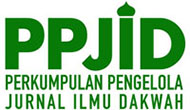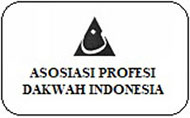Empowering Generation Z Volunteers: The Role of Social Influence and Religiosity
Abstract
Volunteerism plays a crucial role in enhancing youth participation in community service, but the roles of social influence and religiosity in shaping Generation Z's volunteer intentions remain underexplored. This study examines the impact of social influence and religiosity on Generation Z's volunteer intentions at Masjid Al Akbar, Surabaya. Using Partial Least Squares Structural Equation Modeling (PLS-SEM) and data from 104 respondents, the results show that social influence significantly affects volunteer intentions, with religiosity acting as a key mediator. The significant mediation effect reinforces how religious values amplify the influence of social networks. This research contributes to the development of social behavior and volunteerism theories, especially in religious contexts. The findings offer practical strategies for both religious and secular organizations to mobilize Generation Z, emphasizing the critical role of social and cultural factors in shaping volunteer behavior.
Keywords
Full Text:
PDFReferences
Ajzen, I. (1991). The theory of planned behavior. Organizational Behavior and Human Decision Processes, 50(2), 179–211. https://doi.org/10.1016/0749-5978(91)90020-T
Aksoy, O., & Wiertz, D. (2024). The impact of religious involvement on trust, volunteering, and perceived cooperativeness: evidence from two British panels. European Sociological Review, 40(1), 143–159. https://doi.org/10.1093/esr/jcad024
Arli, D., & Lasmono, H. (2015). Are religious people more caring? Exploring the impact of religiosity on charitable organizations in a developing country. International Journal of Nonprofit and Voluntary Sector Marketing, 20(1), 38–51. https://doi.org/10.1002/nvsm.1516
Büssing, A., Recchia, D. R., & Dienberg, T. (2018). Attitudes and behaviors related to Franciscan-inspired spirituality and their associations with compassion and altruism in Franciscan brothers and sisters. Religions, 9(10), 324. https://doi.org/10.3390/rel9100324
Chen, Y., Dai, R., Wang, L., Yang, S., Li, Y., & Wei, J. (2021). Exploring donor’s intention in charitable crowdfunding: intrinsic and extrinsic motivations. Industrial Management and Data Systems, 121(7), 1664–1683. https://doi.org/10.1108/IMDS-11-2020-0631
Cho, M., Bonn, M. A., & Han, S. J. (2018). Generation Z’s Sustainable Volunteering: Motivations, Attitudes and Job Performance. Sustainability, 10(5), 1400. https://doi.org/10.3390/su10051400
Clary, E. G., Ridge, R. D., Stukas, A. A., Snyder, M., Copeland, J., Haugen, J., & Miene, P. (1998). Understanding and assessing the motivations of volunteers: A functional approach. Journal of Personality and Social Psychology, 74(6), 1516–1530. https://doi.org/10.1037/0022-3514.74.6.1516
Clary, E. G., Snyder, M., & Ridge, R. (1992). Volunteers’ motivations: A functional strategy for the recruitment, placement, and retention of volunteers. Nonprofit Management and Leadership, 2(4), 333–350. https://doi.org/10.1002/nml.4130020403
Denning, S. (2021). Religious faith, effort and enthusiasm: motivations to volunteer in response to holiday hunger. Cultural Geographies, 28(1), 57–71. https://doi.org/10.1177/1474474020933894
Dimock, M. (2019). Defining generations: Where Millennials end and Generation Z begins. Pew Research Center, 17(1), 1–7.
Dinas Kominfo Jatim. (2023). Gubernur Khofifah Launching Ramadan Genzi di Masjid Al Akbar Surabaya. https://kominfo.jatimprov.go.id/berita/gubernur-khofifah-launching-ramadan-genzi-di-masjid-al-akbar-surabaya
Einolf, C. J. (2011). The link between religion and helping others: The role of values, ideas, and language. Sociology of Religion: A Quarterly Review, 72(4), 435–455. https://doi.org/10.1093/socrel/srr017
Garai‐fodor, M., Varga, J., & Csiszárik‐kocsir, Á. (2021). Correlation between generation z in hungary and the motivating factors to do volunteer work in a value‐based approach. Sustainability (Switzerland), 13(20). https://doi.org/10.3390/su132011519
Gioia, D. A., & Pitre, E. (1990). Multiparadigm perspectives on theory building. Academy of Management Review, 15(4), 584–602. https://doi.org/10.5465/amr.1990.4310758
Hair, J. F., Black, W. C., Babin, B. J., & Anderson, R. E. (2014). Multivariate Data Analysis:A Global Perspective. In Multivariate Data Analysis: A Global Perspective (Seventh Ed). Pearson Education Limited .
Handy, F., Cnaan, R. A., Hustinx, L., Kang, C., Brudney, J. L., Haski-Leventhal, D., Holmes, K., Meijs, L. C. P. M., Pessi, A. B., Ranade, B., Yamauchi, N., & Zrinscak, S. (2010). A cross-cultural examination of student volunteering: Is it all about résumé building? Nonprofit and Voluntary Sector Quarterly, 39(3), 498–523. https://doi.org/10.1177/0899764009344353
Hill, J. P., & Den Dulk, K. R. (2013). Religion, volunteering, and educational setting: The effect of youth schooling type on civic engagement. Journal for the Scientific Study of Religion, 52(1), 179–197. https://doi.org/10.1111/jssr.12011
Ismail, A. R., Nguyen, B., Chen, J., Melewar, T. C., & Mohamad, B. (2021). Brand engagement in self-concept (BESC), value consciousness and brand loyalty: a study of generation Z consumers in Malaysia. Young Consumers, 22(1), 112–130.
Knepper, H., D’Agostino, M. J., & Levine, H. (2015). Volunteer Management Practices during Challenging Economic Times. Journal of Public Management and Social Policy, 10(2), 211–230.
Masduki, M., Triantoro, D. A., & Rosidi, I. (2022). The “Teras Dakwah” (Dakwah Terrace) Movement Program: the Philosophy and Dakwah Activism Charity-Based in Yogyakarta. Jurnal Ilmiah Peuradeun, 10(1), 65. https://doi.org/10.26811/peuradeun.v10i1.624
Musick, M. A., & Wilson, J. (2003). Volunteering and depression: The role of psychological and social resources in different age groups. Social Science and Medicine, 56(2), 259–269. https://doi.org/10.1016/S0277-9536(02)00025-4
Neely, A. R., Lengnick-Hall Morrow-Howell, N., & Mui, A. (2013). The Unfolding Model of Volunteer Motivation. Academy of Management Proceedings, 12448.
Radarsurabaya. (2023). Masjid Al Akbar Surabaya Gagas “Majelis Subuh GenZi” untuk Generasi Milenial. https://radarsurabaya.jawapos.com/surabaya/77987486/masjid-al-akbar-surabaya-gagas-majelis-subuh-genzi-untuk-generasi-milenial
Sallam, A. A. A., Abdullah, S., Ramli, A. J., Hussin, N. S., Ahmad, Z., & Bahari, A. (2018). Religiosity and Volunteering Intention among Undergraduate Malaysian Muslim Students. MATEC Web of Conferences, 150, 5090. https://doi.org/10.1051/matecconf/201815005090
Thoha, A. F. K., & Ibrahim, M. S. S. (2023). Digital transformation of mosque da’wah: organizational learning and innovation in the digital age. Al-Balagh : Jurnal Dakwah Dan Komunikasi, 8(2), 307–342. https://doi.org/10.22515/albalagh.v8i2.7634
Wang, T., Li, Y., Kang, M., & Zheng, H. (2019). Exploring individuals’ behavioral intentions toward donation crowdfunding: evidence from China. Industrial Management & Data Systems, 119(7), 1515–1534.
Yeung, J. W. K., Zhang, Z., & Kim, T. Y. (2017). Volunteering and health benefits in general adults: Cumulative effects and forms. BMC Public Health, 18(1). https://doi.org/10.1186/s12889-017-4561-8
DOI: http://dx.doi.org/10.24014/idarotuna.v6i2.32855
Refbacks
- There are currently no refbacks.

This work is licensed under a Creative Commons Attribution 4.0 International License.
Indexed by:
Editorial Office:
2nd Floor, Building of Da'wah and Communication Faculty, UIN Sultan Syarif Kasim Riau. Jl. HR Soebrantas Km 15, Simpangbaru, Tampan, Pekanbaru
Email : jurnal.idarotuna@uin-suska.ac.id

Jurnal Idarotuna is licensed under a Creative Commons Attribution-ShareAlike 4.0 International License.













